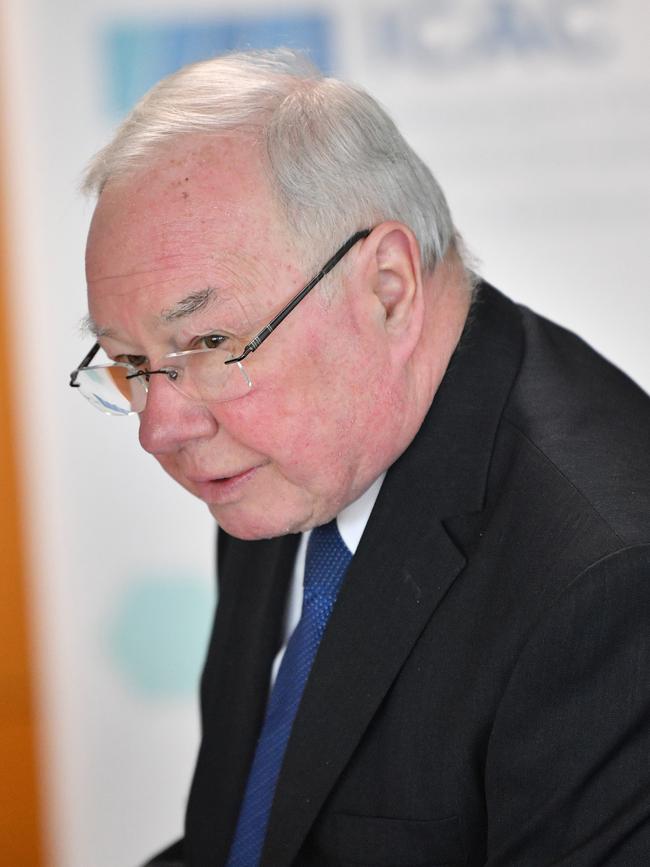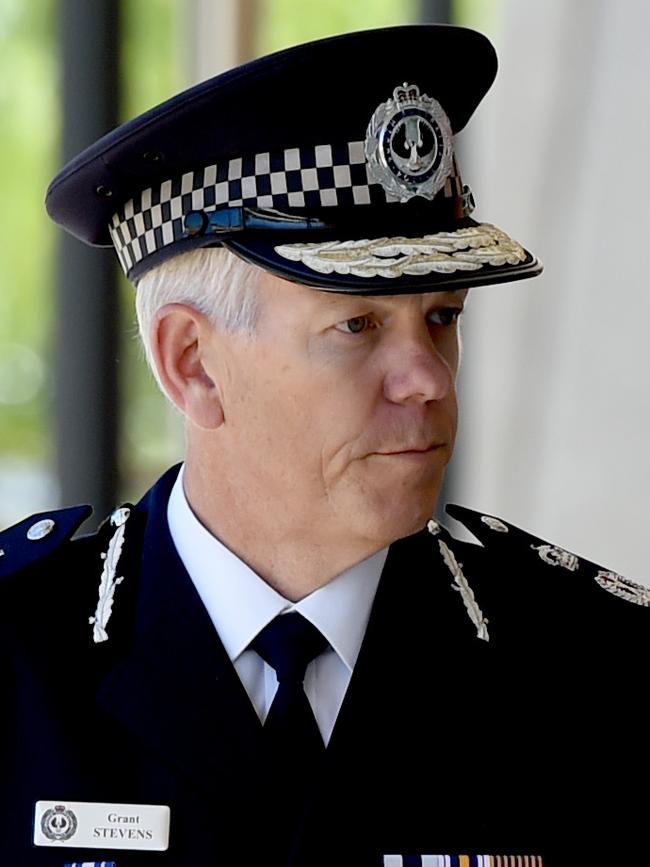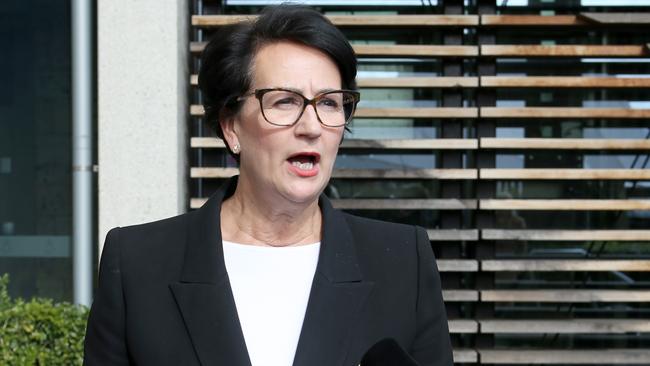Your right to know: How police are protected by a ‘cone of silence’
POLICE are hiding in a “cone of silence” and avoiding public scrutiny because laws keep secret internal investigations on officer misconduct, anti-secrecy campaigners warn.
SA News
Don't miss out on the headlines from SA News. Followed categories will be added to My News.
Your right to know week:
- Politicians’ perks — every MP’s register of interests revealed
- Council chiefs’ pay — some earn more than state ministers
- How suppression orders automatically protect sex offenders
POLICE are hiding in a “cone of silence” and avoiding public scrutiny because laws keep secret internal investigations on officer misconduct, anti-secrecy campaigners warn.
South Australia’s anti-corruption watchdog took charge of all major complaints and reports about the state’s officers and staff from the Police Ombudsman in September last year.
But secrecy conditions introduced by the former Labor government — with support from the Liberals — keep potential police wrongdoing out of the public eye.
MPs and victims rights’ advocates are calling for an urgent State Government review of the “farcical” Police Complaints and Discipline Act 2016.
Ministers have not ruled out overhauling it but will first consider recommendations from Independent Commissioner Against Corruption Bruce Lander QC within weeks.
Mr Lander, who believes the laws are working “tolerably well” for the Office for Public Integrity, revealed his review involves the secrecy provisions.


Under the laws, only Police Commissioner Grant Stevens, Mr Lander or a court can authorise publication of specific information.
The media faces fines of up to $150,000, and individuals $30,000, for breaching the Act.
“This is a farcical situation that belongs better in the script of an episode of Get Smart than in the laws of … South Australia,” said Greens MLC Tammy Franks, who raised the problems in Parliament on Thursday and wrote to the State Government seeking changes.
“The ICAC ‘cone of silence’ model being applied to complaints and investigations of police behaviour serves our democracy about as effectively as a shoe phone.
“It would be a laughing matter if it weren’t so serious. Our state must have the transparency to have trust in the handling of police complaints and disciplinary processes and outcomes.”
SA-Best MLC Connie Bonaros said her party would propose changes within weeks to stop police hiding “under a cloak of secrecy”.


“It is draconian, outdated and in urgent need of review,” she said.
SA Civil Liberties Council chairwoman Claire O’Connor SC said laws must balance protecting victims and workers but “not all police behave well”.
“It’s in the public interest to know internal investigations of conduct are dealt with fairly and appropriately,” she said.
Victims’ rights advocate Michael O’Connell also urged changes. “Having regard for the public interest, which is fundamentally different from interesting among the public, the principles of open justice should prevail unless there are ‘special circumstances’, such as harm to the victim,” he said.
“It is interesting that when police apprehend a suspect there is (with few exceptions) no mandatory suppression of the suspect’s identity.”
In his annual report, tabled in State Parliament this week, Mr Lander said police should investigate themselves in some cases “provided they do so transparently and appropriately”.
Figures show his office received 1990 police complaints, which included misconduct, excessive force, mismanagement, bullying and other criminal behaviour. At least 39 reports were sent to the ICAC for “consideration”. Police internally investigated other disciplinary matters — the number of which remains unknown.
Journalists from The Advertiser have repeatedly sought details and responses from SA Police about various internal disciplinary matters.
Police media refuse to comment, instead sending copies of Section 46 that limits reporting of incidents, personal details and any information that tends to identify people involved.
Police further refused to provide information about two officers reported for abuse of public office and dishonest dealings with documents detailed in its latest annual report.
The report revealed 18 allegations of theft by deception or fraud were investigated over the past financial year.
Of those, 12 investigations are ongoing, two required no further action, one was unsubstantiated and another officer was cleared.

In a statement, an ICAC spokeswoman said while a review into the laws was not required for three years, Mr Lander has “indicated it would require some amendment for it to work better”. She said the review would be completed by the end of the year and would comment on Section 46.
“The ICAC Commissioner has determined there is utility in reviewing the Act after one year of operation and is currently preparing that report,” she said.
Attorney-General Vickie Chapman said her party supported the laws as a “new model of complaint processes”.
“The Commissioner is due to provide a report on this Act … and we will await his recommendations,” she said.
Opposition legal affairs spokesman Kyam Maher said Mr Lander’s recommendations would be considered on merit.


